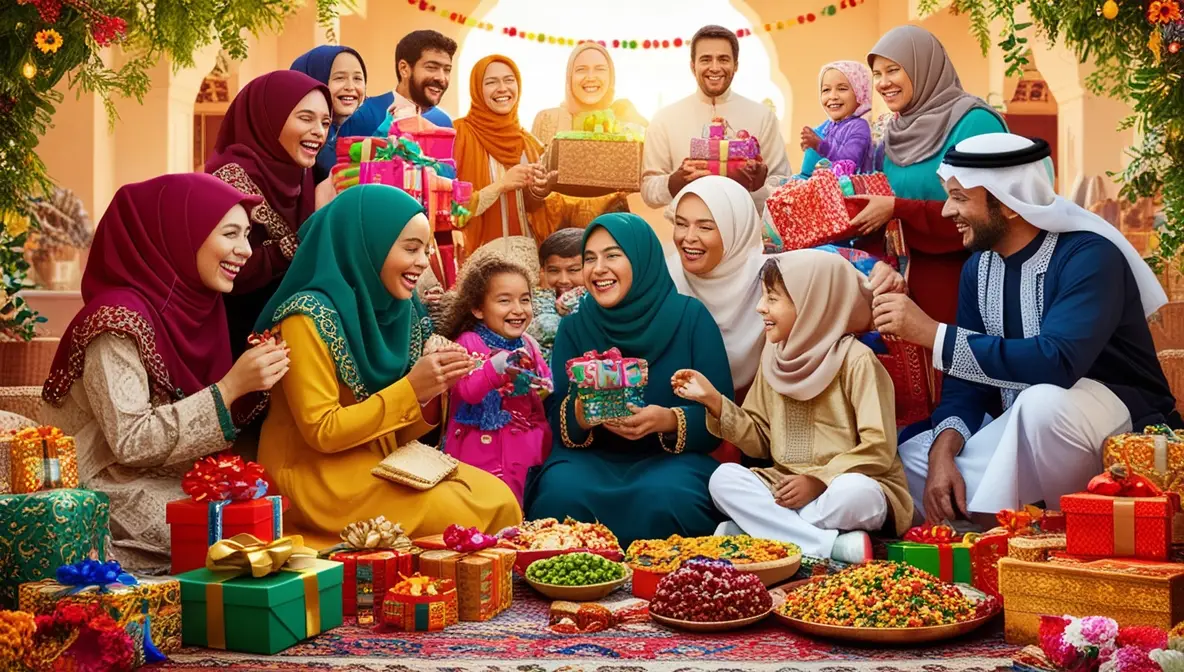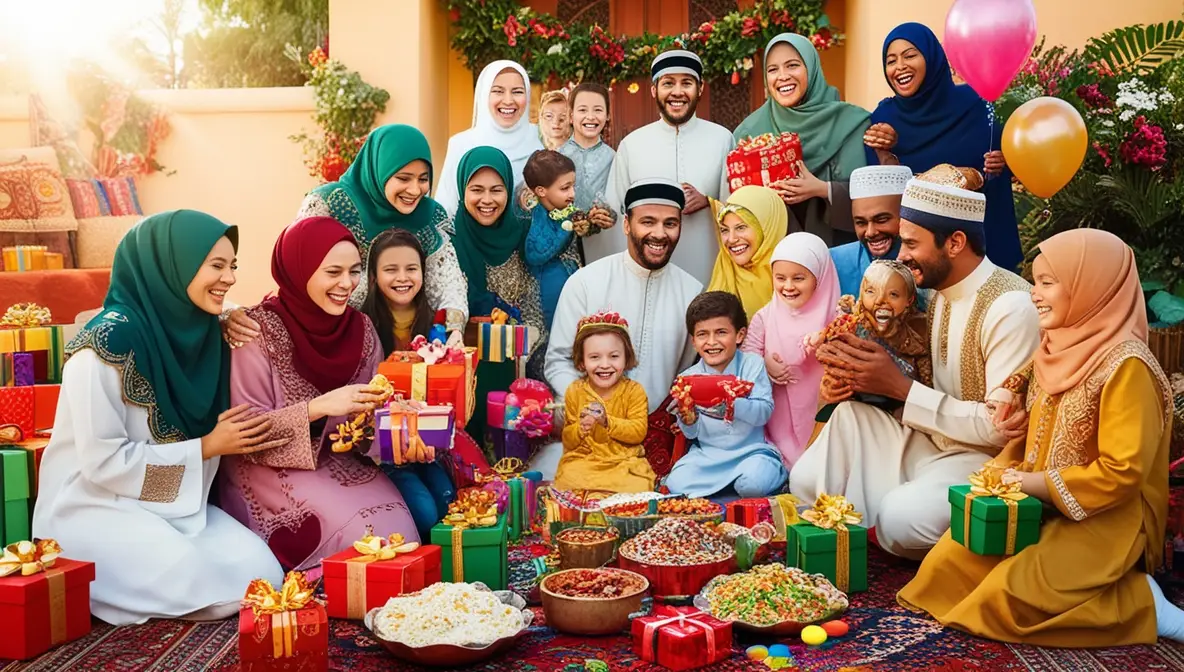Eid al Adha: The Feast of Sacrifice
Next Eid al Adha: Friday, 6 June 2025
Eid al Adha, known as the Feast of Sacrifice, is one of the two most sacred Islamic celebrations, observed by Muslims worldwide. It occurs on the 10th day of Dhu al-Hijjah, the final month of the Islamic lunar calendar. This four-day festival varies each year on the Gregorian calendar.
Globally, Muslims celebrate this day, with it being a gazetted holiday in India. Educational institutions and businesses close, while it is not a public holiday in the United States, United Kingdom, Canada, and Australia.

- Friday, June 06 2025
- Tuesday,May 26 2026
- Sunday,May 16 2027
- Thursday, May 04 2028
Meaning of Eid al-Adha
The term Eid translates to festival, holiday, or celebration, while Adha means sacrifice (specifically, animal sacrifice). A common greeting is “Eid al-Adha Mubarak,” which means “Have a blessed Eid al-Adha.”
The Story Behind Eid al-Adha
In the Quran, it is narrated that Ibrahim had dreams of sacrificing his son Ishmael. Interpreting these dreams as a test of faith, Ibrahim shared them with Ishmael, who urged his father to obey God’s command.
As Ibrahim prepared for the sacrifice, the Devil tried to sway him from his duty. Ibrahim resisted, casting pebbles at the Devil. Just as he was about to sacrifice Ishmael, Angel Gabriel intervened, providing a lamb for the sacrifice instead. This act symbolized God’s acknowledgment of Ibrahim’s faith and obedience.
On Eid al-Adha, Muslims honor Ibrahim’s willingness to sacrifice his son and celebrate Ishmael’s spared life. This sacred day underscores themes of faith, sacrifice, and community, emphasizing gratitude for the animals sacrificed in God’s name.

Eid al-Adha Traditions
Eid al-Adha fosters community spirit. Muslims begin the day with prayers at the mosque, which are conducted in congregation. After the prayers, they exchange Eid Mubarak greetings and share gifts.
To honor the day, many wear new or their best clothes. A significant aspect is the animal sacrifice, typically a cow, sheep, goat, or ram, divided into three parts: one for the family, one for relatives and friends, and one for the poor.
Throughout the world, Muslims celebrate by attending mosque services and participating in community gatherings, sharing traditional dishes from various cultures.
Eid al-Adha Celebration in Different Countries
The United States:
In the U.S., home slaughtering is rare; most prefer to use official slaughterhouses. Approximately 3.45 million Muslims reside in the country, representing about 1.1% of the population, with diverse culinary traditions from around the globe.
The United Kingdom:
In the UK, Eid al Adha often begins with ghusl, a purification bath, followed by prayer services at mosques. Due to British law, animal sacrifices must occur in official slaughterhouses. The Muslim population in the UK is about 3.9 million, accounting for 6.5% of the total population.
Bangladesh:
In Bangladesh, Eid al Adha is known as Bakri Eid (Bakri meaning goat) and Kurbanir Eid (Kurbani meaning sacrifice). Preparations begin a month in advance, with shops stocking sweets, gifts, and clothing. Cows, buffalos, and goats are commonly sacrificed.
United Arab Emirates:
In the UAE, residents enjoy a three-day holiday for Eid al Adha, including the Day of Arafat. Cities like Dubai host celebrations featuring fireworks and discounts in shops, while traditional dishes like Quzi, Chicken Machboos, and Luqaimat are enjoyed.


